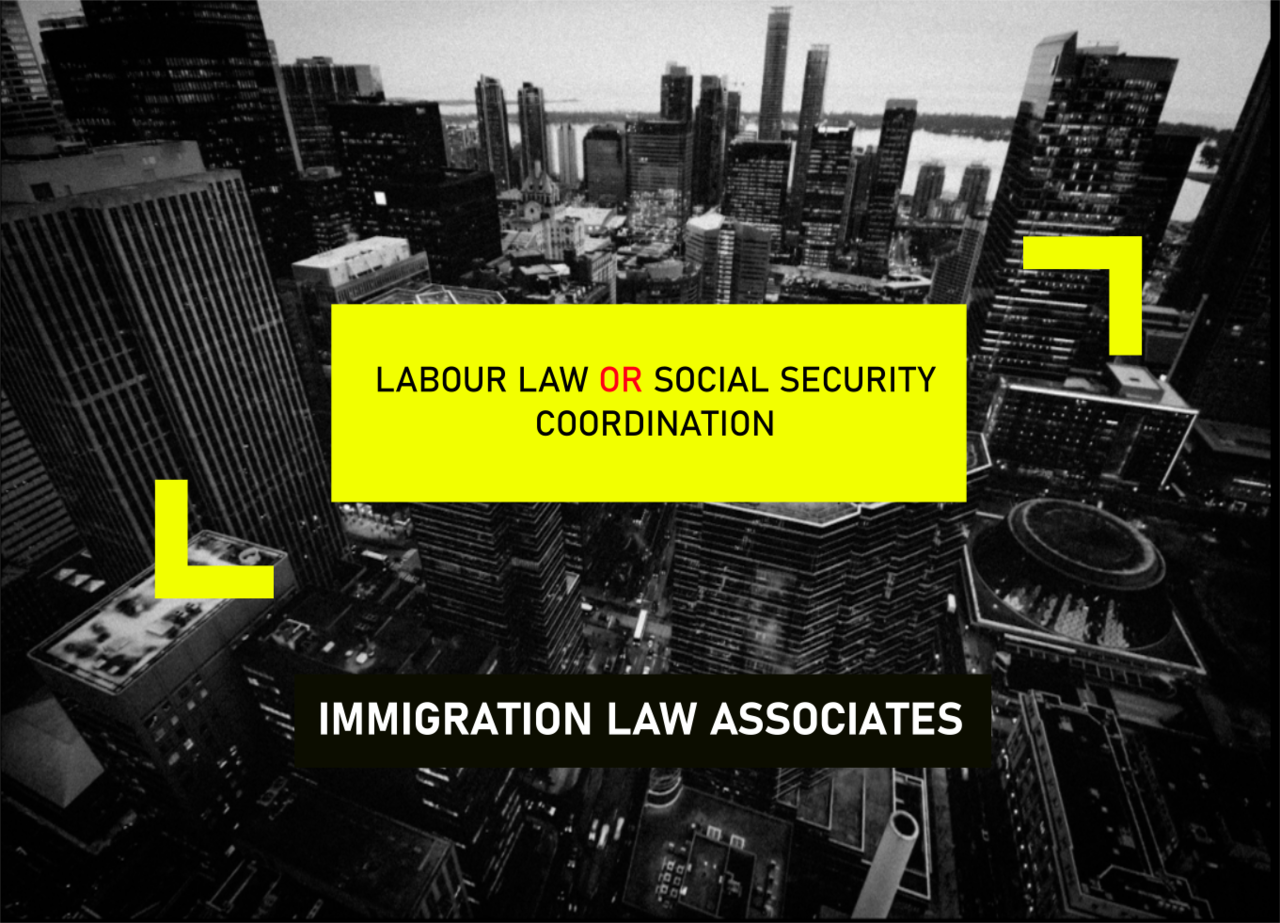
Bouygues Travaux Publics, a well-known French company, has obtained a contract from the French Government, for the construction of a nuclear reactor in Flamanville (FR). Bouygues has established two joint ventures, with two other companies. One of the joint ventures, has subcontracted the works to an economic interest grouping (GIE), composed of SAS Welbond, Bouygues Travaux Publics and Quille. To complete the construction project, GIE has subcontracted certain works to Elco Construct, company established under the Romanian law, and to Atlanco Limited -temporary work agency located in Cyprus.
Following a compliant about the work and living conditions of foreign workers, and an investigation by the Nuclear Safety Authority and by the police ,four companies were prosecuted for different offences committed between June 2008 and October 2012 : concealed employment, use of services of concealed workers, unlawful hiring of workers ,employment of foreign nationals not holding an authorisation to work in France.
The Prosecutor has decided not to proceed for further judicial investigations.
The main pleas in law invoked by the defendants: possession of Portable Documents A1 justifying lawful posting (Elco’ employees under Art 14(1) Regulation 1408/71 or Art 12 Regulation 883/2004, certain of the Atlanco’ employee hired out to the defendants , under Art 14(2)(b) Regulation 1408/71 or Art 13 Regulation 883/2004).
The PDA1, were not formally challenged by the first instance court.
The Court of Appeal of Caen:
- has not formally challenged the PDA1 issued-the criteria from Altun and Others (C-359/16) are not met
- alleged that before assessing in which Member State social security contributions are due, it is important to determine whether the postings are lawful.
The Court of Appeal found the postings unlawful, and fined:
- Bouygues and Welbond for use of the services of concealed workers and the unlawful hiring of labour
- Elco for concealed employment
It must be first recalled that the social security coordination regulations (Titre II) determines the applicable legislation for the social security. The legislation is determined by the competent authority, and such a determination can be challenged pursuant to the procedure provided for by the said regulations and settled ECJ case law (Altun and Others C359/16). The determination of an unlawful posting under the social security coordination regulations, cannot be dissociated from the decision to challenge/disregard the PDA1 issued by the competent authority.
The AG Opinion in Vueling Airlines SA (joined cases C-370/17 and C-37/18) does not rule out the principle of sincere cooperation, and however, it is not confirmed by the ECJ.
As the case at issue, the Court of Appeal has challenged the postings under the French labour law (fact confirmed by the question referred to the ECJ, by the French Cour de Cassation).
It is interesting to assess the arguments invoked by the Court of Appeal in view of determining whether the postings are lawful under the French labour law. Will address only Elco Construct’ case.
After an ambiguous and confusing introduction of the concept of “posted worker” under Article 1262-1 French labour Code (in its version applicable at the time of the facts), interpreted in the sense of (or supplemented by) , Directive 96/71/EC and (!) Regulations 883/2004 and 987/2009, the Court of Appeal invoked the following arguments:
Employees were not habitually working for Elco before the initiation of the posting
The Court of Appeal upheld the interpretation always given by the French labour authority(the DIRECCTE) to the concept of posting : employees posted, must have been employed by (habitually working for) the undertaking making the posting, in the home country, before the initiation of the posting. The Court of Appeal alleged that a “long period” of previous employment is required.
Such an interpretation is in breach of Directive 96/71EC. The definition of posted worker (Article 2.1 Directive 96/71/EC), does not contain reference to national legislations. The concept must be given an autonomous interpretation throughout the EU, under EU law, and not under the French law.
The Practical Guide on Posting released by the EU Commission (on posting under labour law), recalls that the Directive applies even when the employment relationship was not established a certain time before the posting, “provided that the employment contract exists from the start to the end of the posting assignment” (2.18-emphasis added).
Elco Construct does not ordinarily perform substantial activities in Romania
To determine whether Elco Construct has performed a substantial activity in Romania (over the period 2008-2012),the Court of Appeal invoked the Practical guide on the applicable legislation (social security legislation) ,notably the criterion under which the achievement by the posting undertaking ,of 25% of the total turnover in the posting State, could be a sufficient indicator.
In addition to a potential problem of ratione temporis prima facie disregarded, after stating that the social security subjection is not the question, the Court of Appeal invoked the social security coordination regulations.
To assess substantial activities in relation to labour law, the Court of Appeal could (should) have considered Article 4 Directive 2014/67/EU. Pursuant to Article 4.2 e), the turnover in the posting State, represents one of the criteria in determining whether the undertaking making the posting, performs a substantial activity in the country of establishment. The “problem” is that under the said article, an overall assessment, covering an extended period is required, and that can be more laborious than merely applying the “25% rule”.
The place where Elco Construct had its administration
The Court of Appeal upheld that the administrative management of the workers was performed by the French and German legal entities, and not by the headquarter established in Romania.
Again, such a criterion is from Decision No A2 of 12 June 2009 concerning the interpretation of Article 12 Regulation 883/2004 (social security coordination).
It can be as well under Article 4.2 d) Directive 2014/67/EU, however, no further clarifications are brought, and in any circumstances, no overall assessment of the criteria under Article 4.2 Directive 2014/67/EU, is carried out by the court.
Posting period
The Court invoked certain postings lasted more than 24 moths (i.e. five out of 297). Or, under Directive 96/71/EC and under the French labour law, the duration of the posting is not limited to 24 months. Obviously, reference is made to the social security coordination regulations.
The Court of Appeal concluded that pursuant to Article L1262-3 French Labour Code, Elco had pursued an habitual, stable and continuous activity in France, and as a consequence, the postings are unlawful.
Practically, not finding sufficient grounds in the French labour law, and where the PDA1 were not challenged, the Court of Appeal has applied the French Labour law, “supported” by provisions of the social security coordination regulations or interpreted in the light of such provisions.
In C-17/19, the French Cour de Cassation referred to the ECJ a question can be summarised as follows : whether a PDA1 that has not been challenged ,binds the courts of the Member State in which the work is carried out, not only as regards the social security system, but also as regards labour law.
Assessing the case in the main proceedings, practically the question is whether provisions under social security coordination regulations, that would eventually rule out the eligibility for a PDA1, can be enforced to interpret provisions of the French labour law, because however, allegedly, all that is about obligations of employers, and rights of workers.
The social security coordination regulations on the one hand, and, the Posting of Workers Directive on the other hand, are hermetic legal instruments.
A PDA1 should not bind as regards labour law. However, the identification of a genuine posting under labour law, must be carried out under that law, and not under the social security coordination regulations. To that extent, Article 4 Directive 2014/67/EU, must be read in conjunction with Recital 11 of the said directive.
ECJ hearing scheduled on 23 January 2020.





Please sign in or register for FREE
Sign in OR sign up to become a registered The Forum for Expatriate Management website user
Subscribe here